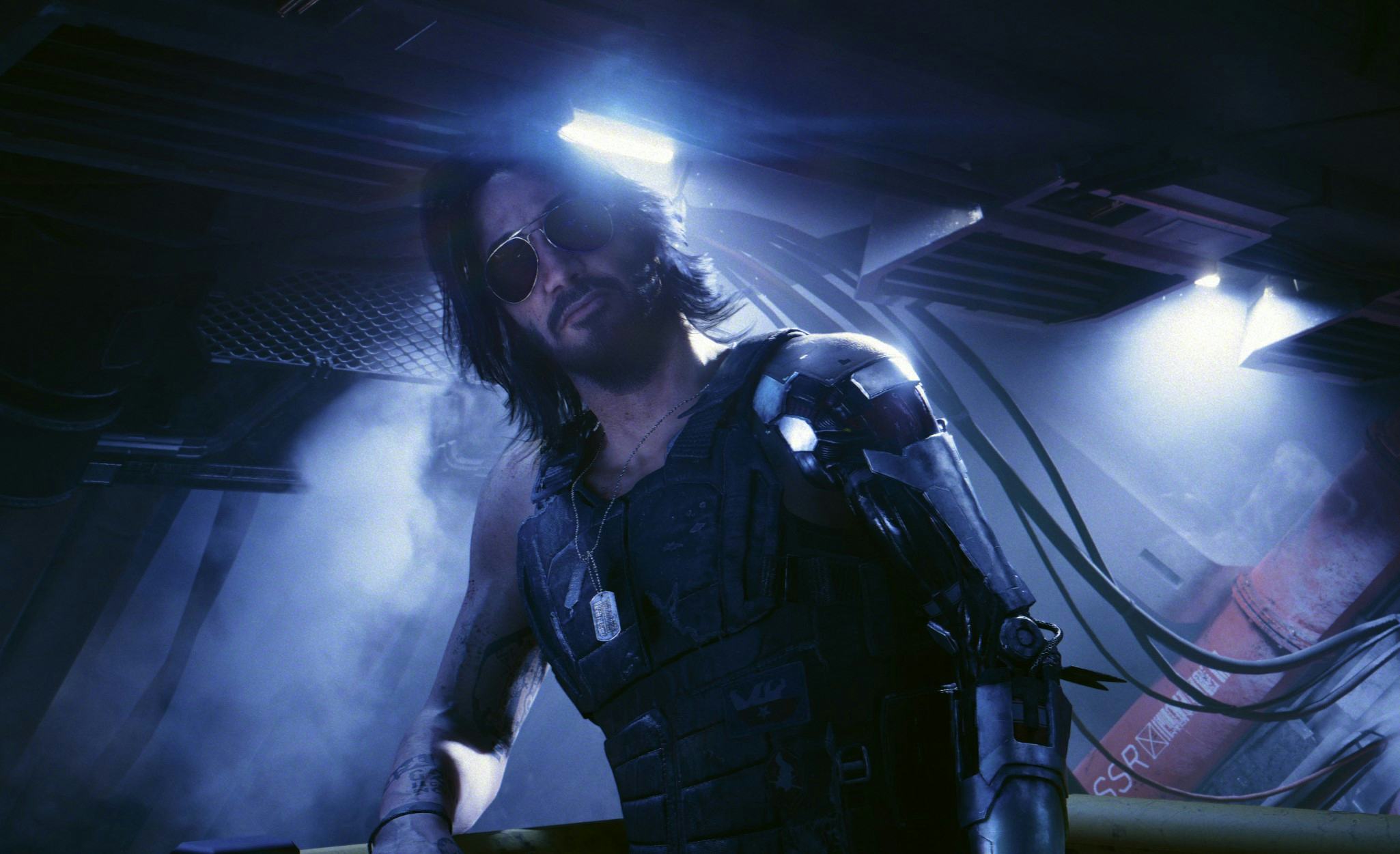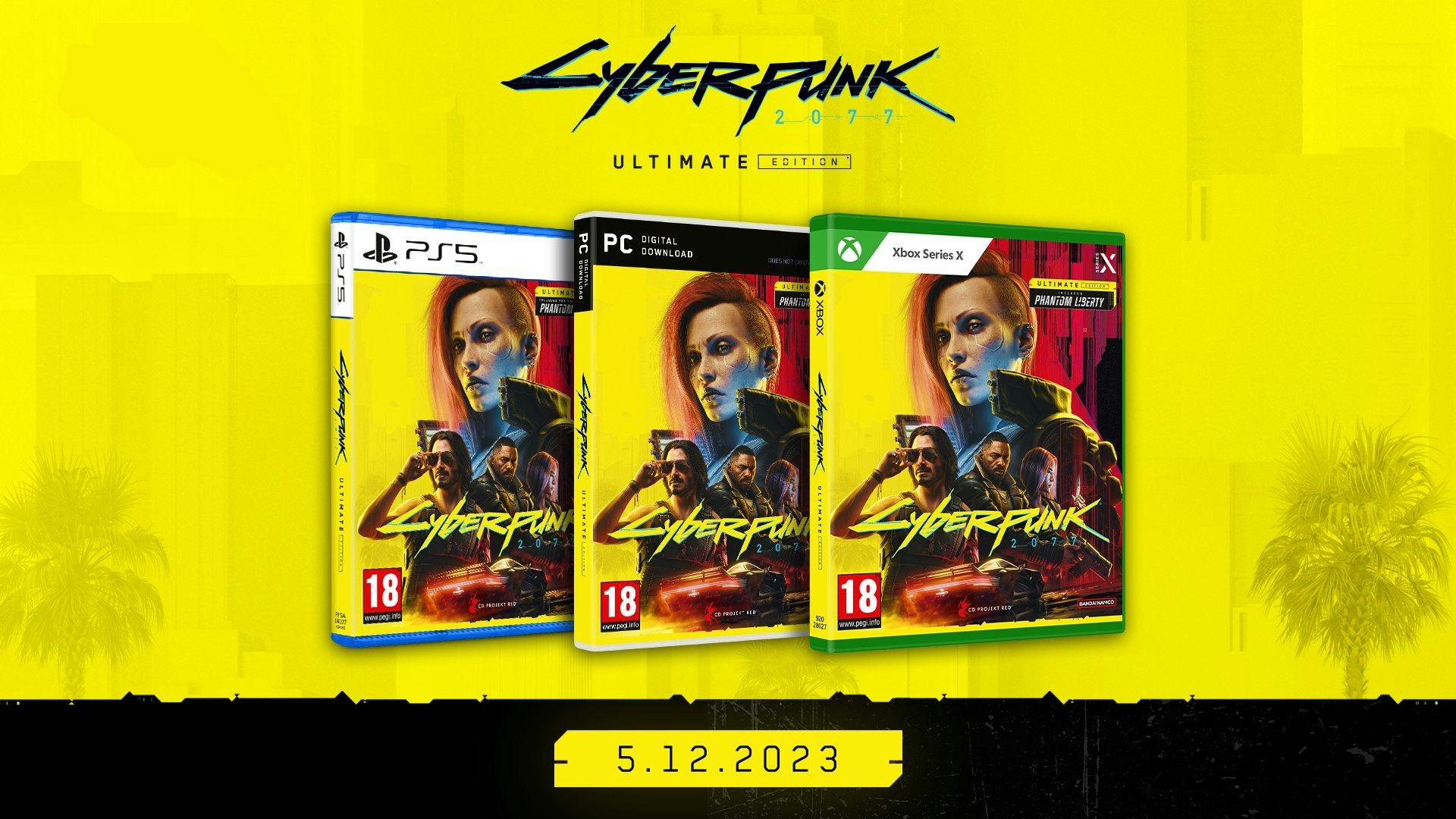
It’s taken three years and a lot of work, but Cyberpunk 2077 is finally the game CD Projekt Red promised us in 2020. In that time, the company has delivered a number of patches, a major overhaul, and a new DLC story expansion. That’s a lot of changes from the game that existed at launch. The first version of Cyberpunk 2077 was so plagued by problems that Sony stopped selling it on the PlayStation Store for a number of months.
On Tuesday, CD Projekt Red announced Cyberpunk 2077: Ultimate Edition, offering players the entire, better, experience in one package for $59.99 on December 5.
The new Cyberpunk release will be offered for the Xbox Series X|S, PlayStation 5, and PC bundling together the base game with the major 2.0 overhaul and the Phantom Liberty story expansion.
What makes this new version of Cyberpunk truly special is that CD Projekt Red is offering a physical release at all.
At a time when the push for a digital future has major consequences for the state of media preservation, physical media is more important than ever. Cyberpunk 2077: Ultimate Edition helps make sure the game will be preserved, with the major caveat that the only version to be preserved in this release is the one that exists without the baggage of the initial launch.
Physical vs digital media has been a conflict in the gaming space that has only grown in recent years as console manufacturers and game publishers seemingly push toward a digital future. Both Xbox and PlayStation offer digital-only versions of their consoles for consumers, with leaked documents from the Microsoft vs FTC trial suggesting the next Xbox Series revision might be digital only.
2023 has also seen a number of big games completely forgo physical releases. Like a Dragon Gaiden: The Man Who Erased His Name had a digital-only release, as did one of this year’s biggest games — Alan Wake 2. On the official Alan Wake 2 FAQ there is even a section devoted to explaining why the game has a digital-only release that cites digital-only consoles, the popularity of digital purchases by players, and the ability to keep the price lower. The FAQ further states that “There are currently no plans to release Alan Wake 2 on disc.”
While these reasons are solid, it doesn’t address the larger issue of media preservation at play. In film and television, streaming services have shown that digital-only media can too easily be wiped from public access by the companies that own it without warning. Games focusing on digital releases could lead to an increasingly similar fate. This is already happening with titles like P.T. The playable teaser for Hideo Kojima’s Silent Hills was taken down from the PlayStation store by Konami after the project was canceled, even preventing those who previously owned the demo from re-downloading it.

The issue also extends to different versions of games. With digital releases that can be constantly updated or patched, it’s more difficult to preserve the game’s release state. This scrubs away the evolving story of a game’s post-release development. Cyberpunk 2077: Ultimate Edition isn’t without fault in that case.
While the ability to own the “definitive” version of the game and its expansion on physical media is welcome, it also helps push along the erasure of the game’s initial release state and its troubled development by only offering the working version of the game that took three years post-launch to come together. And while I want people to be able to play the “good” version of Cyberpunk 2077, it’s important that we have access to the mess that it was on release for the sake of preservation.
So, Cyberpunk 2077: Ultimate Edition is a glass-half-full, glass-half-empty situation. People should support the physical release, but I also hope some people somewhere are holding on to their physical copies of the game’s 1.0 release so that future generations can behold the game’s original launch in all its broken glory.







